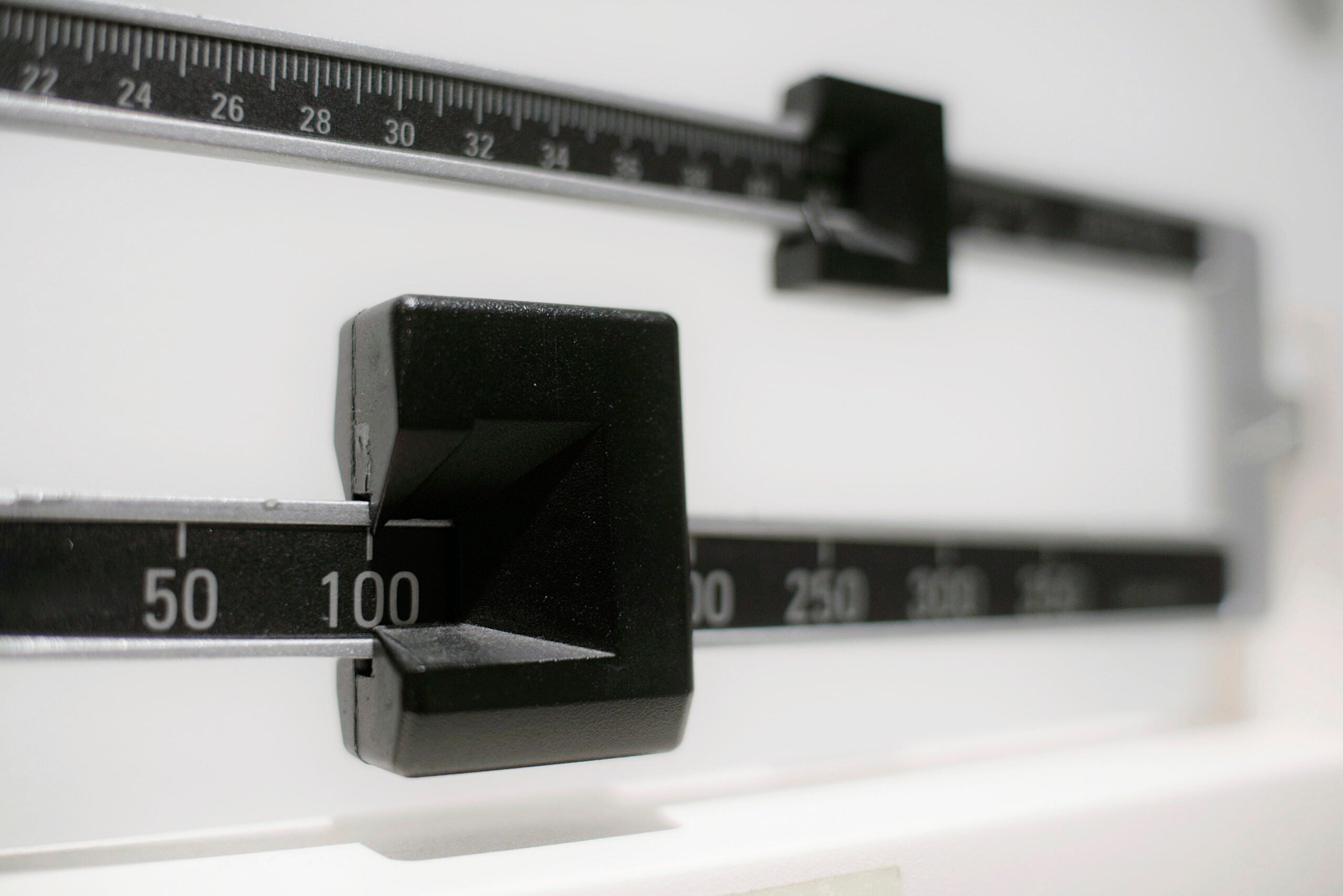By the time young girls become adults, 97 percent of them report having at least one “I hate my body” moment daily, said psychologist Shilagh Mirgain. Dissatisfaction with body image is rising for men, too.
That concerns Mirgain, who told Larry Meiller that nitpicking our own imperfections and drowning our body image in a pool of negativity isn’t going to make us healthy. In fact, research shows, the opposite might do the trick.
“There tends to be one significant predictor of being successful with weight loss, and that is having self-compassion, which is simply just being kind to ourselves,” Mirgain said. “So I think a great place to start is just really working on some of that acceptance and self-love and mindfully moving our body. And eating foods that truly nourish us.”
Stay informed on the latest news
Sign up for WPR’s email newsletter.
The following has been edited for brevity and clarity.
Larry Meiller: What are we talking about when we use the term “body image”?
Shilagh Mirgain: I think it’s a combination of how we perceive our bodies. So our thoughts, our attitudes, our behaviors. And it’s really a multi-dimensional concept that we can think about the mental picture we form of our body as a whole, and it can include those physical characteristics of it, but also how we feel, our energy level and how we take care of it.
If we look at the mind body connection, often where we need to start is in the mind, of shifting that perception of your body instead of it being something maybe you’re fighting against or you’re criticizing. How do you befriend that body? So, you’re taking care of it in a way that is sustainable and nourishing.
LM: That good body image, I think you’re saying, is important when it comes to finding a healthy weight.
SM: When we look at what really helps promote health and eating well and moving our body well, we find at the core it’s just how we’re talking to ourselves, how we’re treating ourselves.
When we look at weight loss, there are cultural considerations. There can be, especially in Western culture, this idea that thin is better. And looking at other cultures, or even across time, there have been different standards of beauty. And so I’m always looking at not that one size fits all, but what is health for you? What is a healthy weight? And that’s going to look different for different genetics or body types. And even, again, those cultural characteristics.
So if we go back at the core, really looking at how do we treat ourselves? Are we making strong judgments of our body that make us feel less than or undeserving or unworthy? And how can we instead be just more kind and more loving, more accepting and then taking care of our body?
LM: When you’re not happy with your body, people tend to, I think, avoid mirrors. But you say we shouldn’t do that.
SM: When we think about strengthening this mind body connection, using some mirror work can be very therapeutic — seeing your own reflection. We do it with babies. You put a mirror in front of them and have that baby gaze at themselves so they get that sense of self. And sometimes in adulthood and as we age, we can start avoiding looking in mirrors because we’re not happy with what we’re seeing.
So, let’s say you’re brushing your teeth in the morning in front of the mirror. Just simply notice where your eyes go and what thoughts arise. You can use some mindfulness here. You can notice some areas that you like. It could be your fingers or your hair or your eyes or your collar bone. And you can just notice that.
And then you could notice some areas that produce some discontent, or judgment, or a distressing emotion and think about acknowledging it, but then maybe reflecting, shifting that. And you could even do a loving kindness practice like, “I accept you as you are” or “I appreciate you for all that you allow me to do” or “I’m grateful for you.”
And again, when we look at people who are really successful with losing weight and staying healthy, that self-compassion is at the core. And so I always say you can fake it to make it. It could feel a little cheesy, but even just practicing it starts to build and strengthen that core of compassion toward yourself and that connection between mind and body.
LM: Some problems, let’s say alcohol or smoking — that’s one thing we have an option to quit, but we don’t have an option to quit eating. And controlling how we eat is really difficult for a lot of people.
SM: Absolutely. That’s where mindfulness and mindful eating can come in. We don’t have to be perfect. We may have those times where we pick those sweet treats for a pick-me-up, but we’re looking to be fairly good in our nutrition. But there are some mindfulness practices that can help us eat from that mind body perspective.
One of the ones I’m often recommending is using some grounding strategies prior to and during eating. That can look like, when you set your plate, to stop and do a couple mindful breaths prior to eating and then using those five senses. So you’re breathing and you might notice the color of the food, the texture of the food, the smell of the food, and the sounds that the food makes as you’re chewing it. And really savoring the taste. Taking a few breaths prior to eating just allows you not to be in that autopilot, just shoving the food in, but really savoring.
Another practice is to slow down your pace. It takes around 20 minutes from our first bite to when we actually feel full. But most of us shovel the food in or eat it on the go. That often can lead to eating more and not feeling as satiated. So you might set a timer for that 20 minutes. You might even intentionally put your fork or spoon down and take a pause in the midst of the meal and then resume.
We find that slowing down the pace and some of those mindful grounding practices even improves digestion, and we end up feeling full and satisfied.
And one last one that I have started to use is to use a smaller plate. So if our food takes up like 70 percent of our plate, we actually feel more satisfied when we’re done eating. And so having a smaller plate can actually help us reduce portion size, because we’re having less food, but it looks like it’s filling up that plate.



